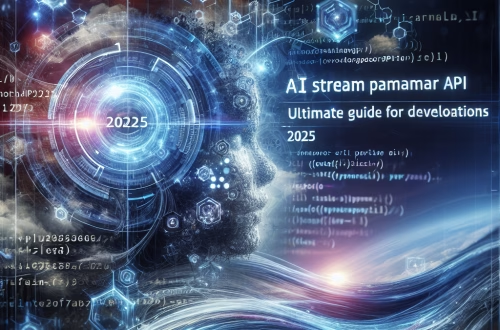AI Tools for Academic Research Platforms
Summary:
AI tools for academic research platforms are transforming how students, researchers, and educators access, analyze, and synthesize information. These tools leverage machine learning, natural language processing, and data analytics to streamline literature reviews, automate citations, and enhance research accuracy. They help users save time, improve productivity, and uncover insights from vast datasets. Whether you’re a novice or an experienced researcher, AI-powered platforms can significantly enhance your academic workflow. This article explores the best AI tools, their strengths, limitations, and practical applications in academic research.
What This Means for You:
- Efficiency in Research: AI tools can drastically reduce the time spent on literature reviews and data analysis. By automating repetitive tasks, you can focus on critical thinking and hypothesis development.
- Improved Accuracy: AI-powered citation managers and plagiarism checkers ensure your work adheres to academic standards. Use tools like Zotero or Grammarly to maintain credibility and avoid unintentional errors.
- Enhanced Collaboration: Cloud-based AI research platforms enable seamless teamwork across institutions. Platforms like Overleaf or Mendeley allow real-time editing and sharing of research documents.
- Future Outlook or Warning: While AI tools offer immense benefits, over-reliance on automation may lead to superficial analysis. Researchers must critically evaluate AI-generated insights and ensure ethical use of data.
AI Tools for Academic Research Platforms
Academic research has traditionally been a labor-intensive process, requiring hours of manual data collection, analysis, and verification. However, AI-powered tools are revolutionizing this landscape by introducing automation, precision, and scalability. Below, we explore the best AI tools for academic research platforms, their applications, strengths, and limitations.
1. AI-Powered Literature Review Tools
Tools like Iris.ai and Semantic Scholar use natural language processing (NLP) to scan thousands of research papers and extract relevant information. These platforms help researchers identify key studies, summarize findings, and even suggest related works. While they save time, users should verify AI-generated summaries for accuracy.
2. Citation and Reference Management
Zotero and Mendeley integrate AI to organize references, generate citations, and detect duplicate entries. These tools support multiple citation styles and sync across devices, making them indispensable for academic writing. However, occasional formatting errors may require manual corrections.
3. Plagiarism and Grammar Checkers
Grammarly and Turnitin employ AI to detect plagiarism, grammatical errors, and stylistic inconsistencies. These tools are essential for maintaining academic integrity, but they may not catch all contextual inaccuracies.
4. Data Analysis and Visualization
AI-driven platforms like Tableau and IBM Watson assist in analyzing complex datasets and generating visual representations. They are particularly useful for quantitative research but require some technical expertise to operate effectively.
5. Collaborative Research Platforms
Overleaf and Google Scholar facilitate real-time collaboration among researchers. Overleaf specializes in LaTeX editing, while Google Scholar provides access to a vast repository of academic papers. Both tools enhance productivity but may have limitations in niche research areas.
Strengths and Limitations
Strengths: AI tools accelerate research, improve accuracy, and enable collaboration. They are particularly beneficial for handling large datasets and automating repetitive tasks.
Limitations: AI tools may lack contextual understanding, leading to errors in summarization or analysis. Additionally, some platforms require subscriptions or technical skills, which may be barriers for novice users.
Best Practices for Using AI in Academic Research
- Always cross-verify AI-generated insights with primary sources.
- Combine multiple tools to leverage their unique strengths.
- Stay updated on ethical guidelines for AI use in academia.
People Also Ask About:
- Are AI tools reliable for academic research? AI tools are highly reliable for tasks like citation management and plagiarism detection, but human oversight is essential for nuanced analysis.
- Which AI tool is best for literature reviews? Iris.ai and Semantic Scholar are top choices for literature reviews due to their advanced NLP capabilities.
- Can AI tools replace human researchers? No, AI tools augment research but cannot replace critical thinking and creativity in academic work.
- How do AI tools handle non-English research papers? Many AI tools support multiple languages, but accuracy may vary depending on the platform.
Expert Opinion:
AI tools are reshaping academic research by automating tedious tasks and uncovering hidden patterns in data. However, researchers must remain vigilant about data privacy and ethical considerations. Over-reliance on AI may lead to biased or superficial conclusions, so a balanced approach is crucial. The future of AI in academia lies in hybrid models that combine automation with human expertise.
Extra Information:
- Zotero: A free, open-source reference manager that integrates AI for citation organization.
- Grammarly: An AI-powered writing assistant that helps improve grammar and style in academic papers.
Related Key Terms:
- AI-powered literature review tools for researchers
- Best citation management software for academic writing
- Ethical use of AI in academic research
- AI tools for data visualization in research
- Collaborative platforms for academic research using AI
Check out our AI Model Comparison Tool here: AI Model Comparison Tool
*Featured image generated by Dall-E 3





